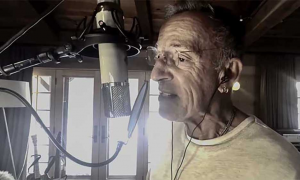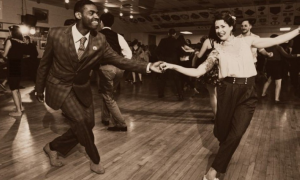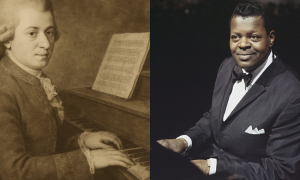Home » Jazz Articles » Opinion » The Power of Jazz Critics
The Power of Jazz Critics
With the advent of the Internet, today's listeners have access to much more information about individual releases, being able to listen to sound samples, visit label and artist websites or check out radio stations on the web like NetRadio. So even if you're without a jazz station in your home town, or a CD store with a comprehensive selection, the web can be a great resource. But you still have to use it. It's so much simpler to just read a review. Hence, the power of the critics, with their reviews in the jazz magazines and newspapers. People actually believe what they write!
"Once a fly was attached to a bull while the bull was walking up and down a field plowing all day and when the fly came home his wife asked him what he was doing and he said, we were plowing." —Chekhov on critics
"A critic is a man who knows the way but can't drive the car." —Kenneth Tynan
Last year, JazzTimes ran an "Under-rated/Over-rated" cover story where a number of leading jazz critics give a thumbs up/thumbs down appraisal of musicians. I must admit I found it rather curious that one fellow considered John Coltrane to be over-rated. Keith Jarrett too.
Not surprisingly, a firestorm of outrage and outright contempt for some of the opinions rendered ensued, yet the musicians themselves were never given a podium. Why didn't the magazine run a follow-up article where musicians rate critics?
A prominent musician puts his own spin on critics in the diatribe A Musicians' Guide to Jazz Criticism.
As the "Under-rated/Over-rated" incident demonstrated, in any argument between a musician and a critic, the critic has the last word. Usually the only word.
Our jazz critics always emerge victorious. In fact, a critic never really gets licked. The reason is that he's never in the ring with anybody. He can become a champion just by shadowboxing.
In the theatre, the New York Times critic has the power to close a show with a bad review.
A bad review in JazzTimes or Down Beat won't wipe a CD off the face of the earth, but a feature article in the Sunday Arts and Leisure section of the New York Times regarding the lack of innovation amongst Miles' alumni after Bitches Brew put a premature end to Wayne Shorter's "High Life" tour on the heels of that release. It seems that the critic didn't like "High Life," or Shorter's recent music.
Yet three years later, I find myself going back to High Life, and I'm not alone in my admiration for the recording. I also heard Shorter's "High Life" band in concert at New York's Town Hall and was mesmerized. But certainly the man at the Times was entitled to his opinion. He just happens to have a very public forum. When artists create, especially in the marketplace environment of jazz, they have to take their lumps.
And it's the nature of the critic to sit in judgment. But if listening to music is a completely subjective experience, one man's Albert Ayler is another's Kenny G.
Sadly, most of jazz reviews are usually stale bits of writing full of weary sentences, repetition and monotonous righteousness. The few critics who are literate are usually determinedly on the dull side. They write the way Perry Como used to sing. Appearing anywhere but in a major jazz magazine, their combined feelings would not influence a field mouse.
The problem is, in this era of a very overcrowded jazz marketplace, many in the jazz community, be they listeners or support personnel, have developed a strong "herd instinct." They do not move in trickles here and there, they flock. They look for the shepherd's signal and purchase only the approved CDs. Point the way and they swarm where they are told, ba-ba-ing the critical praises of the last media darlings. Tell them it's just ordinary drivel and they remain in their home pastures.
There's an older reason for the power of critics. It's that they're the people's representatives and not the artists. They're in the world to preserve its cultural status quo and keep the human herd feeling comfortable that it's going in the right direction.
The critic must always further the idea that the world is flat. The artist must always try to prove its cylindrical or core shaped.
As for the hallmark of the critics, the seeming smugness, the certainty that always sits in judgment and never questions itself—Well, when God handed out his gifts to men, he gave the poet wonder, the musician search, and the novelist confusion. All he had left for the critic was certainty and oblivion.
Tags
PREVIOUS / NEXT
Support All About Jazz
 All About Jazz has been a pillar of jazz since 1995, championing it as an art form and, more importantly, supporting the musicians who make it. Our enduring commitment has made "AAJ" one of the most culturally important websites of its kind, read by hundreds of thousands of fans, musicians and industry figures every month.
All About Jazz has been a pillar of jazz since 1995, championing it as an art form and, more importantly, supporting the musicians who make it. Our enduring commitment has made "AAJ" one of the most culturally important websites of its kind, read by hundreds of thousands of fans, musicians and industry figures every month.























